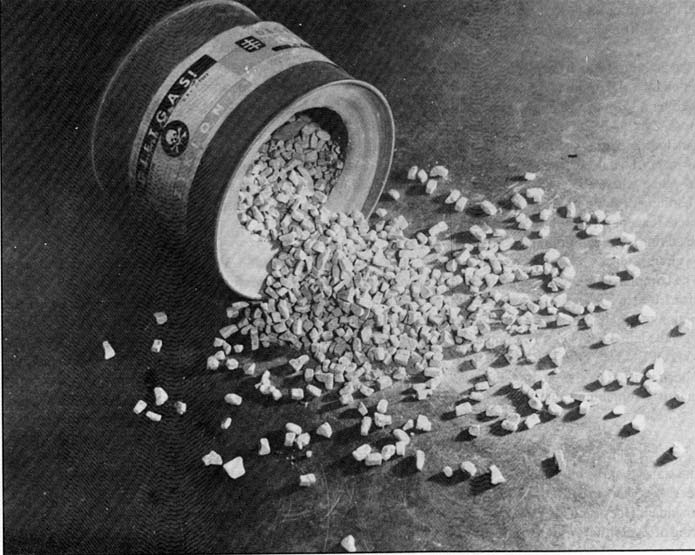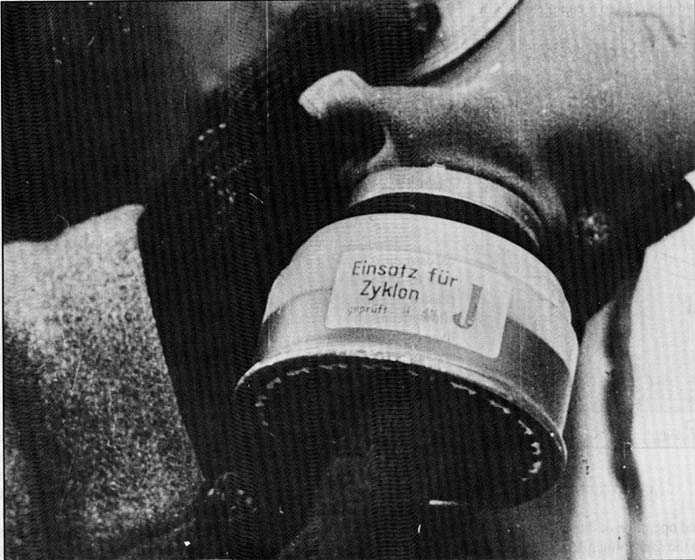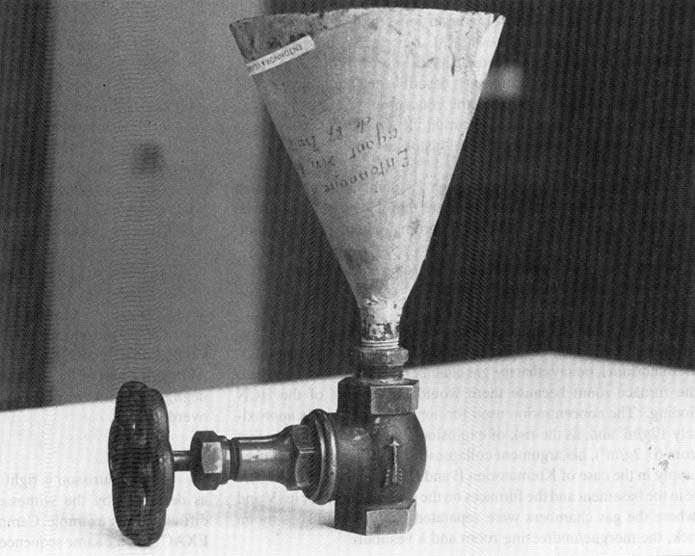
PART ONE
Delousing gas chambers and other disinfestation installations
CHAPTER I FOREWORD ON ZYKLON-B
In the year, 1960-70, when certain bodies were requested to furnish proof of the existence of homicidal gas-chambers, they responded by sending a photograph [Photo 1] or [Photo 2] if their documentation was more complete. These “proofs” were supposed to suffice, but now they are no longer valid. At the Liberation there was a relative lack of knowledge about the toxic products used in the homicidal gas chambers and total confusion about their respective methods of use. Ignorance and confusion were fueled by the publication after the war of books such as Camps de concentration! Konzentrationslager by Eugène Aroneau [Office Français d'Edtition 1946; Arbeitsgemeinschaft Das Licht, undated in German], which can now be considered a historical monstrosity. Instead of presenting for each camp the testimony relevant to it, and this in chronological order, accounts from different sources were split up and regrouped according to a given topic: “extermination”, “selection in the camp”, “selection on arrival”, “gassing and cremation”, etc., a method producing an incoherent and self-contradictory whole.
Through ignorance the operation of the homicidal gas chambers rested on material impossibilities, understandable at the end of the war but which were but rarely corrected afterwards. In Maïdanek, un camp d'extermination [Editions Sociales, Paris 1945] the writer, the Soviet journalist Constantin Simonof, reports that Zyklon-B “crystals” were introduced into the homicidal gas chambers through metal tubes of 2 or 3 cm diameter [running parallel to the ground!], tubes which, in fact, were used to diffuse carbon monoxide coming from metal cylinders outside. I found this impossible association in the Investigation Section of the Warsaw Central Commission. I saw there a photocopy of a French newspaper article illustrated by a can of Zyklon-B surrounded by its “crystals” [Photo 1] PASTED DIRECTLY NEXT TO the funnel used for pouring a liquid found at the Natzweiler [Photo 3]
The relative confusion about the method of using the toxic product in the gas chambers was aggravated by the fact that the SS Bauleitung often grouped in the same building two completely different sanitary functions: showers and incineration furnaces (for example in the Natzweiler camp in France). This proximity brought about a forced association. While in many homicidal gas chambers the showerheads were dummy, there were many testimonies that asserted that the toxic gas was diffused by them. Confusion reinforced by the fact that Zyklon-B was, above all, the regulation pest control agent used by the Wehrmacht, used to delouse effects and combat insects and rodents in premises. During the trials that were held after the war, the tons of Zyklon-B ordered by the camps were attributed to homicidal use without any verification. By far the greater part (over 95 percent) was destined for delousing (effects and buildings) while only a very small part (less than 5 percent) had been used for homicidal gassings.
The small blue pellets (Erco) or “crystals” of a can of Zyklon-B containing 500g of prussic acid.


A “J” type filter for use with Zyklon-B manufactured by the firms Auergesellschaft of Berlin N.65 and Drägerwerke of Lübeck.
The funnel with a tap conserved at La Citadelle de Besançon which was used to supply water to a mixture of chemicals in order to generate prussic acid in the gas chamber at Struthof, asphyxiating 86 Jewish victims in August 1943. (Photo by the Franche-Comté Museum of the Resistance and Deportation, La Citadelle de Besançon.)

